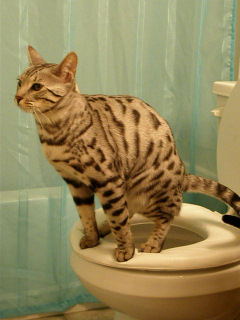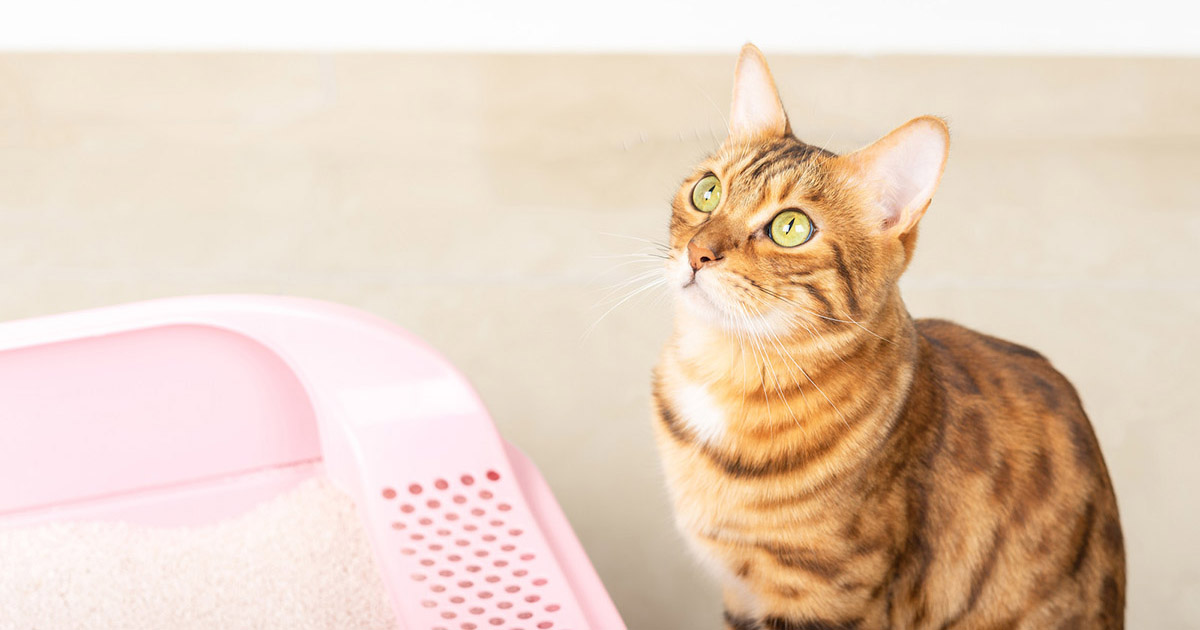Avoid Plumbing Problems: Don't Flush Cat Poop Down Your Toilet - Expert Advice
Avoid Plumbing Problems: Don't Flush Cat Poop Down Your Toilet - Expert Advice
Blog Article
Everybody has their unique assumption with regards to How to Dispose of Cat Poop and Litter Without Plastic Bags.

Intro
As pet cat owners, it's necessary to bear in mind how we throw away our feline buddies' waste. While it may appear hassle-free to flush cat poop down the bathroom, this method can have detrimental consequences for both the atmosphere and human health.
Alternatives to Flushing
Luckily, there are more secure and a lot more accountable means to take care of pet cat poop. Consider the complying with options:
1. Scoop and Dispose in Trash
One of the most usual method of throwing away pet cat poop is to scoop it right into an eco-friendly bag and throw it in the trash. Make sure to use a dedicated trash scoop and dispose of the waste quickly.
2. Usage Biodegradable Litter
Select biodegradable cat trash made from materials such as corn or wheat. These trashes are eco-friendly and can be safely dealt with in the trash.
3. Bury in the Yard
If you have a backyard, think about hiding feline waste in an assigned location far from veggie yards and water resources. Be sure to dig deep sufficient to prevent contamination of groundwater.
4. Install a Pet Waste Disposal System
Invest in an animal waste disposal system specifically designed for cat waste. These systems use enzymes to break down the waste, lowering smell and ecological effect.
Health and wellness Risks
In addition to environmental issues, flushing pet cat waste can additionally present health and wellness risks to human beings. Pet cat feces may contain Toxoplasma gondii, a bloodsucker that can cause toxoplasmosis-- a potentially extreme disease, particularly for pregnant women and people with weakened body immune systems.
Environmental Impact
Flushing feline poop introduces hazardous virus and parasites right into the water supply, posing a substantial risk to aquatic ecosystems. These contaminants can adversely impact aquatic life and compromise water top quality.
Final thought
Responsible pet dog possession expands past supplying food and shelter-- it likewise entails proper waste monitoring. By refraining from flushing feline poop down the commode and choosing different disposal methods, we can lessen our environmental impact and protect human wellness.
Why You Should Never Flush Cat Poop Down the Toilet
A rose by any other name might smell as sweet, but not all poop is created equal. Toilets, and our sewage systems, are designed for human excrement, not animal waste. It might seem like it couldn’t hurt to toss cat feces into the loo, but it’s not a good idea to flush cat poop in the toilet.
First and foremost, assuming your cat uses a litter box, any waste is going to have litter on it. And even the smallest amount of litter can wreak havoc on plumbing.
Over time, small amounts build up, filling up your septic system. Most litter sold today is clumping; it is made from a type of clay that hardens when it gets wet. Ever tried to scrape old clumps from the bottom of a litter box? You know just how cement-hard it can get!
Now imagine just a small clump of that stuck in your pipes. A simple de-clogger like Drano isn’t going to cut it. And that means it’s going to cost you big time to fix it.
Parasitic Contamination
Believe it or not, your healthy kitty may be harboring a nasty parasite. Only cats excrete Toxoplasma in their feces. Yet it rarely causes serious health issues in the cats that are infected. Most people will be fine too if infected. Only pregnant women and people with compromised immune systems are at risk. (If you’ve ever heard how women who are expecting are excused from litter cleaning duty, Toxoplasma is why.)
But other animals may have a problem if infected with the parasite. And human water treatment systems aren’t designed to handle it. As a result, the systems don’t remove the parasite before discharging wastewater into local waterways. Fish, shellfish, and other marine life — otters in particular — are susceptible to toxoplasma. If exposed, most will end up with brain damage and many will die.
Depending on the species of fish, they may end up on someone’s fish hook and, ultimately on someone’s dinner plate. If that someone has a chronic illness, they’re at risk.
Skip the Toilet Training
We know there are folks out there who like to toilet train their cats. And we give them props, it takes a lot of work. But thanks to the toxoplasma, it’s not a good idea.

Do you really like more info about How to Dispose of Cat Poop and Litter Without Plastic Bags? Write a remark down the page. We will be interested to hear your responses about this page. We hope that you come back again later on. Sharing is nice. Helping others is fun. Bless you for your time. Please check our blog back soon.
Automated Marketing Report this page